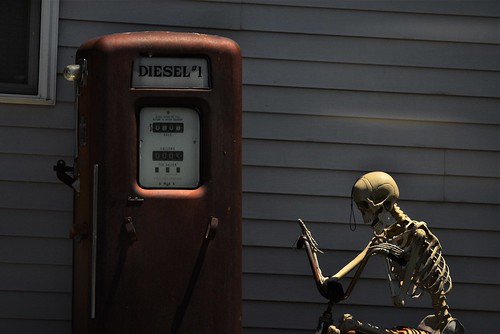Roeth: Diesel-powered trucks deserve a big thank you
Diesel #Diesel

As we move through trucking’s messy middle to a zero-emission freight future, it’s important to pause and thank all the manufacturers, suppliers, and fleets that have worked to improve the efficiency of diesel-powered trucks over the past two decades.
Many lessons learned about getting more miles from a gallon of diesel can be applied to getting more range from battery-electric or hydrogen fuel-cell vehicles. Recent examples include a hydrogen fuel-cell truck that can go 650 miles on a single hydrogen fill and a heavy-duty battery-electric truck that can go 410 miles on a single charge and 1,076 miles in 24 hours.
See also: Roeth: Trucking businesses, climate activists must work together
All the work done to make diesel trucks more efficient has made those achievements possible. Among them are:
Some folks are talking about battery-electric vehicles and hydrogen fuel-cell vehicles as saving the planet. In reality, manufacturers of diesel engines and makers of medium- and heavy-duty trucks have been working on saving the planet too for at least the past two decades by reducing tailpipe emissions and going farther on a tank of diesel fuel. Remember, for every tenth of a mile farther a truck goes on a gallon of diesel, less diesel is burned.
See also: How this truck driver reached 10 MPG
Run on Less 2017 and Run on Less Regional showed what was possible when fleets commit to operating with fuel efficiency as a core value. We can apply the lessons we learned to alternative-powered trucks to make them more efficient.
As we applaud the efforts of alternative-fuel vehicle manufacturers, let’s also thank those who have been doing the equally difficult work of improving diesel truck efficiency. Let’s return to those efficiency numbers I mentioned earlier. Today’s trucks are about 30% more efficient than 15 years ago. Without the improvements battery-electric trucks and hydrogen fuel cell-electric trucks are now benefiting from, those range numbers would be 30% less and not nearly as impressive and close to operational for fleets operating them.
It’s sort of like passing on generational knowledge. Let’s hope the “new kids” are willing to apply the lessons learned by their diesel ancestors.
Michael Roeth has worked in the commercial vehicle industry for nearly 30 years, most recently as executive director of the North American Council for Freight Efficiency (NACFE). He serves on the second National Academy of Sciences Committee on Technologies and Approaches for Reducing the Fuel Consumption of Medium and Heavy-Duty Vehicles and has held various positions in engineering, quality, sales, and plant management with Navistar and Behr/Cummins.